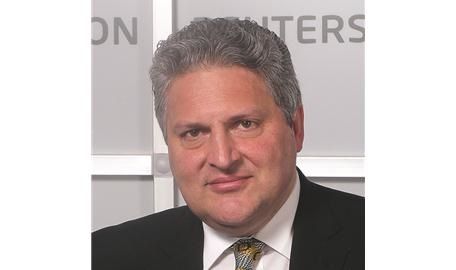SPARE A THOUGHT for Jean-Pierre Mustier, newly anointed chief executive of UniCredit. Shares in the sprawling banking group were tanking on Friday morning, the day after the announcement of his return, plumbing new depths below €1.86.
I say spare a thought first of all because that’s not the kind of reception any CEO would want to confront. Second because you might have thought that EU approval for the Italian government to grant up to €150bn in short-term state guarantees to protect its solvent banks’ access to funding might at least have had some sort of positive impact, even if it’s largely political. Third because Mustier is a smart, considered and accomplished banker who’s presumably coming in with a restructuring plan already written.
But I guess the stock market is a reflection of a lot of things: Brexit turmoil and contagion risks in the immediate aftermath that inter alia saw Spanish and Italian bank AT1s hit; broader concerns about a Brexit-induced economic slowdown; Deutsche Bank and Santander failing their CCAR US stress tests; and of course generalised but barely concealed panic about the state of the Italian banking sector and what the hell to do about its truly mountainous pile of bad debt.
Investors have clearly read Mustier’s stated plans to increase the bank’s capital ratio as tacit confirmation that UniCredit will proceed to some sort of capital increase. Estimates of how much capital the group will need range from €4bn all the way up to €9bn, with the upper end of that range adding in the region of 200bp of oomph to its fully loaded CET1 ratio.
Common sense would dictate that only some of the deficit is plugged with new capital and the rest through asset disposals to avoid dilution. But shareholders are pre-emptively voting with their feet.
“The time has come for UniCredit to undergo radical change,” Berenberg analyst Eoin Mullany wrote in a note this past Monday. “It is too complex and suffers due to weak capital and a large stock of NPLs. The new CEO has a chance to draw a line in the sand and finally address these issues.” Mullany doubts, though, that the board has the will to implement a lot of what’s needed, but I’m not sure they’ve got much room for manoeuvre or can credibly push back on what Mustier comes up with.
Luigi Lovaglio, CEO of majority UniCredit-owned Bank Pekao, ruled out a couple of weeks ago the possibility of a sale of the stake in the Polish lender to raise cash. Mustier may of course have different ideas. Beyond that, disposing of the stake in Turkey’s Koc Financial remains on the table. As does a split with Germany’s HVB. This would all give Mustier some firepower to slay the bete noire of non-performing loans (€79bn as of March 31) through write-downs.
AS FOR THE appointment itself, Mustier saw off a cabal of eight or nine highly qualified Italian or Italian-speaking candidates and got unanimous board approval to boot. No matter how accomplished Mustier is, that’s a bold move. Beyond the potentially emotional issue of whether or not the new CEO had to be an Italian, discussions also revolved around whether someone with retail or commercial/investment banking experience would be preferred.
Well, what they’ve got for their money is a non-Italian with a career spent in corporate and investment banking. But someone who knows the back channels of UniCredit well and without the potential baggage and scope for factionalism an Italian chief might have engendered.
I sense that some sort of deal might have been hatched at or around the time of Mustier’s departure from the group. The Frenchman quit UniCredit in August 2014 but never strayed too far. He immediately joined the group’s international advisory board, and in decamping to Tikehau as a partner – the hedge fund group in which UniCredit has a stake – you kind of get the impression he might just have been taken out of the way of any internecine warfare that might have emerged as Ghizzoni was pushed beyond his tenure and ahead of a potentially messy succession battle.
Maybe a tad conspiratorial but I did hear someone say that appointing a non-Italian would be a smart move because they would be immune to any “sacred cow Italian syndrome” and be up to making tough decisions. And if it got ugly, the Italians could always close ranks, feign indignation and blame a foreign boss.
In a commentary a month or so ago, I did ask who’d want to be CEO of UniCredit. That question may have been answered. We’re about to find out how much.
● A QUICK WORD on Andrea Orcel’s investment bank pruning at UBS. Management de-cluttering by taking out the co-head structures in FRC and equities makes sense in this environment.
But I was surprised by two things: US and EMEA CCS heads Ros Stephenson and William Vereker becoming global co-heads following Matt Hanning’s departure and downplaying APAC, a UBS stronghold, in the management structure was one.
The other was the negative tone of Orcel’s memo, talking of dislocation and a perfect storm of challenges and changes. “I can’t promise you that it will all be smooth sailing from now on in, or that in our endeavour to further enhance the client centricity of our business we won’t have to make further adjustments”, he wrote. Sounds ominous.
